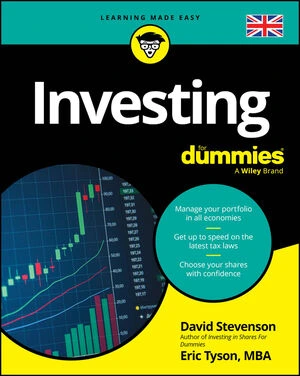Day traders work fast, looking to make lots of little profits by trading stocks and other securities during a single day. Arbitrage is a trading strategy that looks to make profits from small discrepancies in securities prices.
The idea is that the arbitrageur, or arb (the person who does arbitrage), arbitrates among the prices in the market to reach one final level. In theory, arbitrage is riskless. It’s illogical for the same asset to trade at different prices, so eventually the two prices must converge. The person who buys at the lower price and sells at the higher one makes money with no risk.
In academic theory, markets are perfectly efficient, and arbitrage simply isn’t possible. That makes a lot of sense if you are testing different assumptions about how the markets would work in a perfect world.
A long-term investor would say that markets are inefficient in the short run but perfectly efficient in the long run, so they believe that if they do their research now, the rest of the world will eventually come around, allowing them to make good money.
Traders are in between. The market price and volume are pretty much all the information they have to go on. It may be irrational, but that doesn’t matter today. The only thing a trader wants to know is whether an opportunity exists to make money given what’s going on right now.
In the academic world, market efficiency comes in three flavors, with no form allowing for arbitrage:
Strong form: Everything, even inside information known only to company executives, is reflected in the security’s price.
Semi-strong form: Prices include all public information, so profiting from insider trading may be possible.
Weak-form: Prices reflect all historical information, so research that uncovers new trends may be beneficial.
Those efficient-market true believers are convinced that arbitrage is imaginary because someone would’ve noticed a price difference between markets already and immediately acted to close it off. But who are those mysterious someones? They are day traders!
Even the most devout efficient markets adherent would, if pressed, admit that day traders perform a valuable service in the name of market efficiency. And let's face it: The 2008 financial crisis and the 2010 flash crash thinned the ranks of the true believers.
Those with a less-rigid view of market activity admit that arbitrage opportunities exist but that they are few and far between. A trader who expects to make money from arbitrage had better pay close attention to the markets to act quickly when a moment happens. And I’d say this is the case for most arbitrage strategies open to day traders.
Finally, those who don’t believe in market efficiency believe that market prices are usually out of sync with asset values. They do research in hopes of learning things that other people don’t know. This mindset favors investors more than traders because it can take time for these price discrepancies to work themselves out.
Because arbitrage requires traders to work fast, it tends to work best for traders who are willing and able to automate their trading. If you are comfortable with programming and relying on software to do your work, arbitrage may be a great strategy for you.






